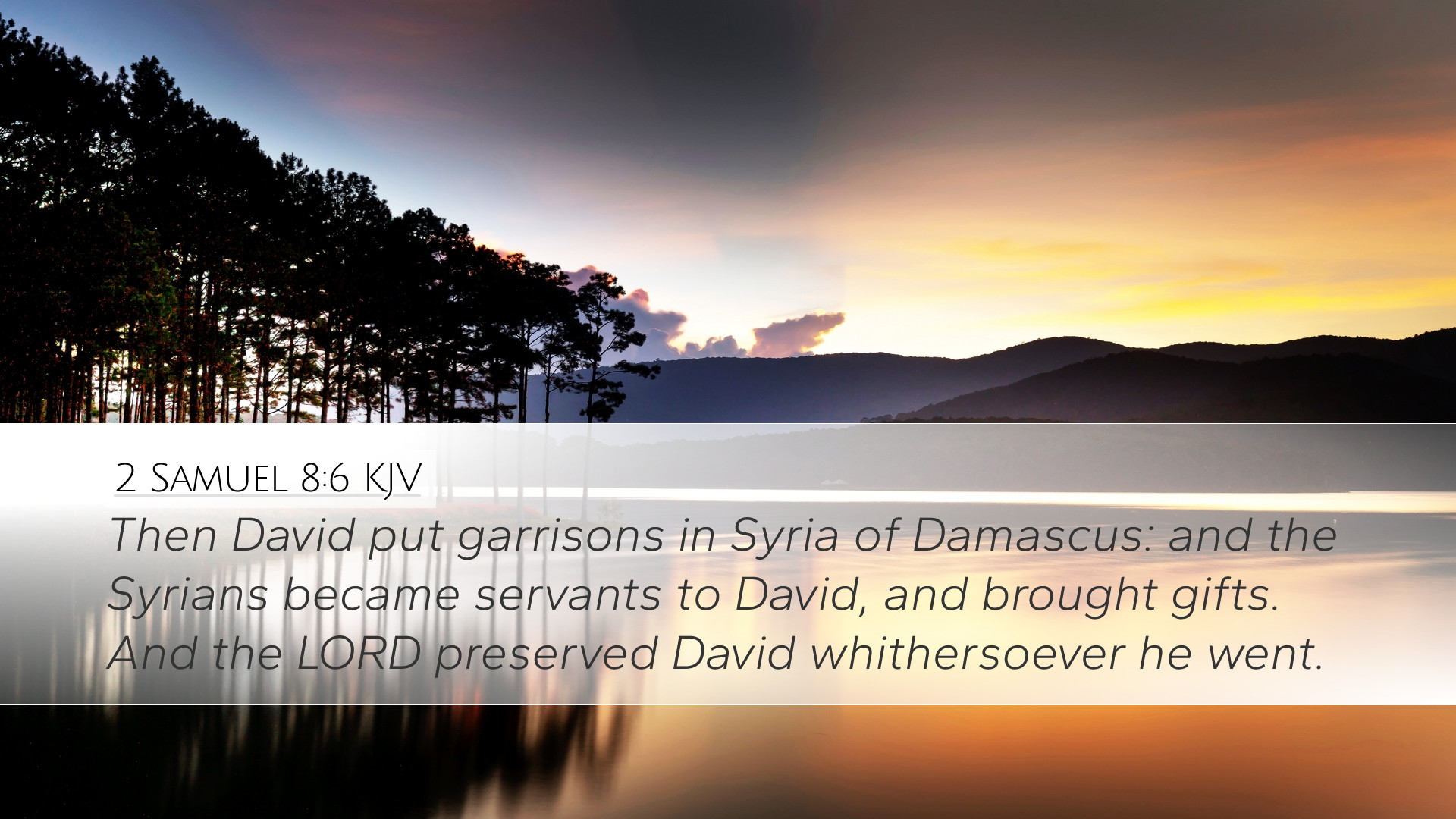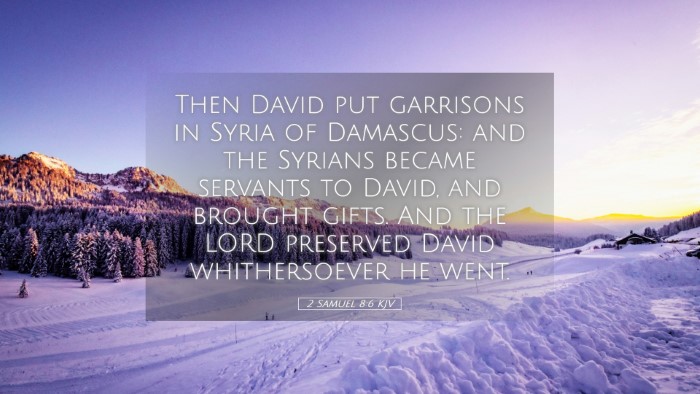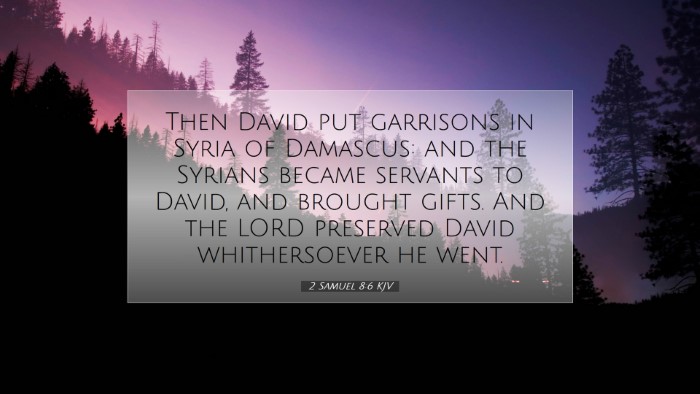Old Testament
Genesis Exodus Leviticus Numbers Deuteronomy Joshua Judges Ruth 1 Samuel 2 Samuel 1 Kings 2 Kings 1 Chronicles 2 Chronicles Ezra Nehemiah Esther Job Psalms Proverbs Ecclesiastes Song of Solomon Isaiah Jeremiah Lamentations Ezekiel Daniel Hosea Joel Amos Obadiah Jonah Micah Nahum Habakkuk Zephaniah Haggai Zechariah Malachi2 Samuel 8:6
2 Samuel 8:6 KJV
Then David put garrisons in Syria of Damascus: and the Syrians became servants to David, and brought gifts. And the LORD preserved David whithersoever he went.
2 Samuel 8:6 Bible Commentary
Commentary on 2 Samuel 8:6
Verse: “Then David put garrisons in Syria of Damascus: and the Syrians became servants to David, and brought gifts. And the Lord preserved David whithersoever he went.”
Introduction
This verse comes at a significant juncture in the narrative of 2 Samuel, reflecting David's military successes and the expansion of his kingdom. It is crucial to explore the implications of David’s actions in Syria, the political landscape of the time, and the theological undercurrents present in this historical account.
Military Authority and Expansion
David's establishment of garrisons in Damascus signifies a military strategy aimed at securing his borders and asserting dominance over neighboring territories. Matthew Henry notes that David's military ventures demonstrate not only his prowess as a king but also illustrate God's providential hand in David’s victories. The act of placing garrisons indicates a deeper commitment to control, suggesting David was not merely a conqueror but also a ruler aiming for stability.
- Strategic Importance: The city of Damascus was strategically vital, serving as a key route for trade and military campaigns. Control over this region would bolster David’s influence and protect his kingdom from external threats.
- Servitude and Tribute: The Syrians becoming servants to David and bringing gifts indicate a transition from conflict to subservience, reflecting the futility of resisting God’s chosen leader. Albert Barnes emphasizes that such tributes were a recognition of David's authority and a means of securing peace.
Theological Reflection
The verse conveys deeper theological concepts that resonate with biblical themes of divine sovereignty and preservation. Adam Clarke points out that David’s successes are emblematic of God’s promise to support his anointed. The phrase “the Lord preserved David whithersoever he went” speaks volumes about God’s role in David’s kingship.
- The Sovereignty of God: The preservation of David is a testament to God's overarching dominion in human affairs, reinforcing the idea that God appoints leaders and ensures their success for His purposes.
- Divine Favor: David's victories and the subsequent subjugation of enemies illustrate God’s favor upon him, a theme that is echoed throughout the Scriptures and highlights the intimate relationship between divine guidance and earthly leadership.
Implications for Leadership
For pastors and church leaders, this verse provides a profound message about the nature of leadership under divine authority. Here are a few reflections:
- Leadership as Stewardship: Just as David fostered loyalty and security through strategic governance, leaders today are called to exercise stewardship over their congregations, ensuring a nurturing spiritual environment.
- Embracing Divine Guidance: The crucial point made by this verse reminds leaders to seek God's guidance in their decisions. Success does not solely depend on human strategies but is rooted in God’s will.
- Responsibility Over Authority: With authority comes the responsibility of service. Like David, leaders are called to serve those beneath them, acknowledging that true leadership manifests through humility and dedication to God’s people.
Conclusion
2 Samuel 8:6 encapsulates a pivotal moment in David’s reign, illustrating the intricate relationship between divine sovereignty and human leadership. As scholars engage with this text, the military, political, and theological insights it offers remain relevant for understanding God's work in history and the responsibilities of those called to lead.


